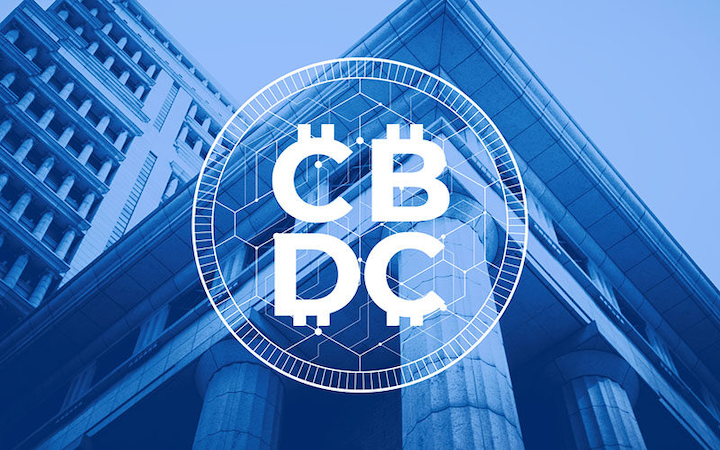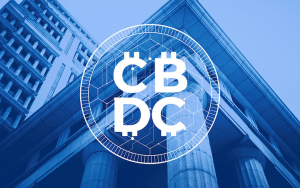Join Our Telegram channel to stay up to date on breaking news coverage
Tom Emmer, the majority whip for the Republican Party in the House of Representatives, cautioned against the deployment of a central bank digital currency (CBDC) on Thursday, criticizing the technology as an attack on American ideals of free markets, individual autonomy, and privacy.
The senator made his remarks during a panel that the Washington, DC-based Cato Institute, a libertarian think group, was hosting. He characterized CBDCs as a power struggle between the US government and its citizens. Yet, according to the Federal Reserve, a CBDC cannot be issued without formal consent from Congress. Also, according to researchers, the technology could promote broader financial inclusion while reducing expenses for customers.
Emmer stated that:
The idea of the central bank digital money has gained traction among the institutions of power as the federal government wants to maintain and enhance the financial control to which it has grown accustomed. I have faith that American ideals will always triumph against the avaricious desires of unelected bureaucrats.
His worries derive from his conviction that a CBDC in the US will compromise Americans’ financial privacy by enabling governmental entities to monitor individual spending or be employed to “choke out politically unpalatable activity.”
In that they are digital tokens linked to the value of a national currency, such the dollar, CBDCs are comparable to stablecoins. CBDCs are issued and managed by their respective governments or central banks as opposed to being issued by private entities on decentralized networks.
According to the Atlantic Council’s CBDC tracker, approximately 90 nations globally, including the United States, are either piloting, producing, or investigating the technology as nations like Japan and Australia go forward with their exploration.
Emmer issued a warning against adopting the “mindset that the United States has lagged behind other countries like China,” which has progressively expanded the use of the digital Yuan. According to Forkast, the nation’s CBDC was incorporated this week into the well-known social networking and payment app WeChat.
In a hearing before the U.S. House Committee on Financial Services last September, several officials argued that America needed to create a CBDC to keep the dollar’s position as the world’s reserve currency.
Nothing could be more risky than creating a CBBC that is not open, permissionless, and private by adhering to a false feeling of urgency like this, Emmer said on Thursday.
Emmer brought up a bill he filed last month that would restrict the Fed’s authority to issue a CBDC directly to individuals, despite the fact that the Fed has consistently stated that it would require congressional approval to do so.
He added,
You do it at your own risk if you want to just presume that people are going to perform the things that you expect them to do. They have already started to move in that way.
Emmer has established himself on Capitol Hill as a vocal supporter of the digital asset sector. He has criticized the Securities and Exchange Commission for its “regulation through enforcement” strategy and the Treasury Department’s decision to ban coin mixer Tornado Cash.
Attempting to assuage privacy concerns
Michael Barr, vice chair for supervision of the Fed, spoke on CBDCs at a meeting of the Peterson Institute for International Economics, another American think tank, less than a mile from the Cato Institute.
A CBDC in the United States should be “insulated” from government scrutiny to the same extent as bank deposits are now, according to Barr, who added that the Fed is aware of privacy concerns raised regarding the establishment of a CBDC.
Barr added,
There are some concerns people have regarding privacy. How much knowledge about the uses would the central bank or other government bodies have?
While the Fed is “quite focused on research and development” for a prospective CBDC, Barr said it is still unclear whether the technology will be used. On the other hand, the Federal Reserve Bank of San Francisco is aggressively seeking senior developers.
About a CBDC, Barr said,
We haven’t decided whether we believe it’s a good concept or not. We would only do it if there was general agreement that it would be beneficial for the nation.
Fed Chairman Jerome Powell avoided saying with clarity during yesterday’s congressional testimony if a CBDC may affect stablecoins already in use, citing how some stablecoins’ reserves are opaque due to a lack of regulation.
Stablecoins should be subject to some sort of government regulation, according to Barr, because they are private forms of currency that depend on American trust.
According to Barr,
They’re a type of private money that borrows the trust of the central bank, and I think [it’s] extremely vital that we get the regulatory control of that right. I believe that right now, Congress has a crucial role to play in creating a framework.
Stablecoins may become more popular among some people “if they’re worried about privacy and they don’t trust the government,” he continued, should a CBDC be introduced in the United States.
Related
- Biden Administration Was Keen To Launch Digital Dollar
- Chaum Reveals His CBDC Of The Future
- Japan Is Set to Launch Digital Yen (CBDC) Pilot in April
Join Our Telegram channel to stay up to date on breaking news coverage


